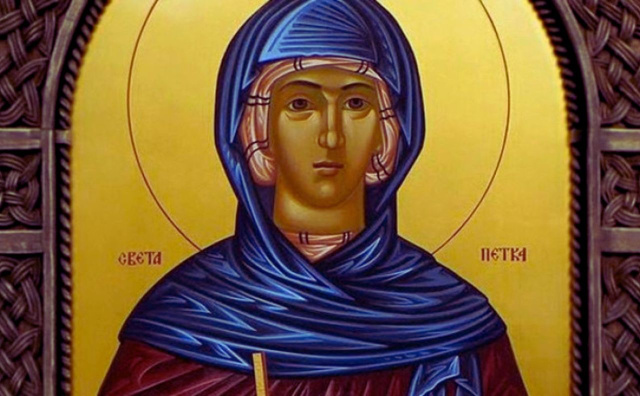
Today, Bulgarians across the country celebrate Petkovden, a beloved holiday dedicated to St. Paraskeva of Epivat, known affectionately as St. Petka of Bulgaria. The day holds deep spiritual meaning, uniting faith, tradition, and family warmth.
The Orthodox Church venerates St. Petka as a protector of home, family, and faith. Those bearing names such as Paraskeva, Petko, Pencho, Petkan, Petkana, and Keva mark their name day, welcoming guests with festive hospitality and abundant traditional dishes.
Often referred to as “Winter Petkovden,” the celebration is considered a turning point in the agricultural year, symbolizing the end of autumn and the arrival of winter. Folk wisdom says, “On Petkovden, may your plow rest under the eaves,” reminding farmers that all fieldwork should be completed by this day.
In Bulgarian folklore, St. Petka is regarded as a guardian of fertility, health, and family prosperity. Her feast day also marks the season for engagements and weddings, believed to be blessed by her benevolent spirit. The saint’s protection extends not only to people but also to animals and crops, representing the cycle of life and renewal.
Traditionally, households prepare rich festive meals including mutton stew, kurban chorba (sacrificial soup), stuffed vine leaves (sarmi), tripe dishes, and leeks. These meals are shared among family and friends as expressions of gratitude for the harvest and the blessings of the year.
Born in the 10th–11th centuries in Epivat, Thrace, St. Paraskeva devoted her life to prayer and asceticism. Her holiness and miracles were recorded by St. Patriarch Euthymius of Tarnovo, solidifying her place as one of the most venerated saints in Bulgarian Orthodoxy.
Her relics were brought to Bulgaria in 1238, housed in the Church of St. Petka Tarnovska in Veliko Tarnovo, before being moved across the Balkans. Since 1641, they have rested in the Cathedral of Iași, Romania, drawing thousands of pilgrims seeking healing and divine grace.
For many Bulgarians, Petkovden is not just a day of worship but a living tradition that connects generations. It’s a time for reflection, gratitude, and reaffirmation of family bonds. In rural areas, the holiday also signals the start of winter festivities, when communities come together to celebrate the close of the agricultural cycle.
From church services to family gatherings, Petkovden remains a cherished symbol of Bulgarian faith and cultural identity — a reminder that even as the cold season approaches, the warmth of tradition endures.
